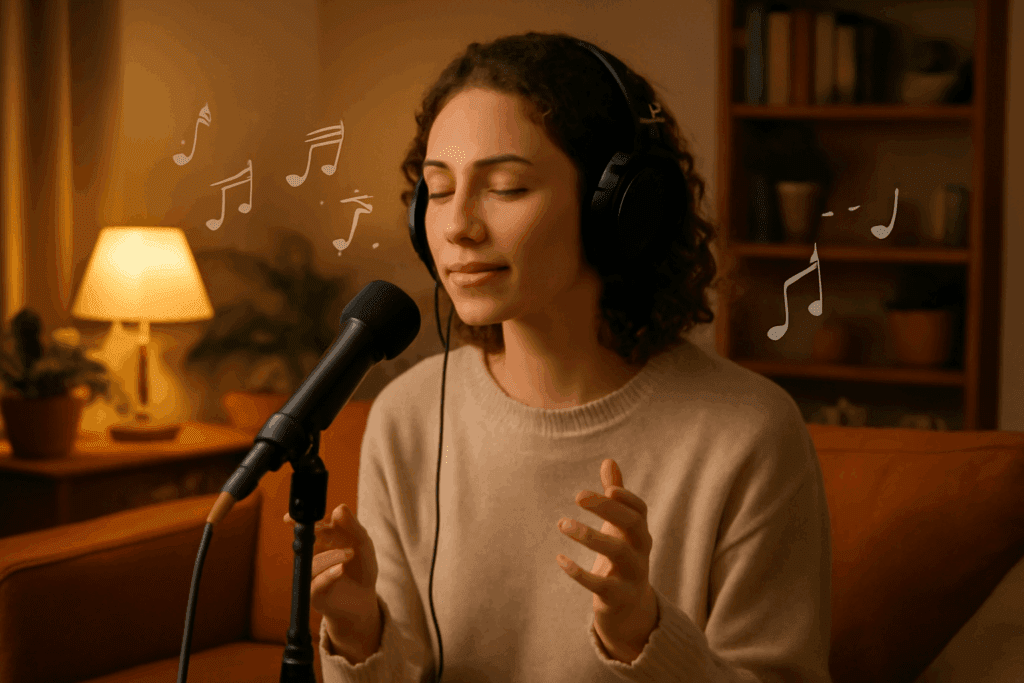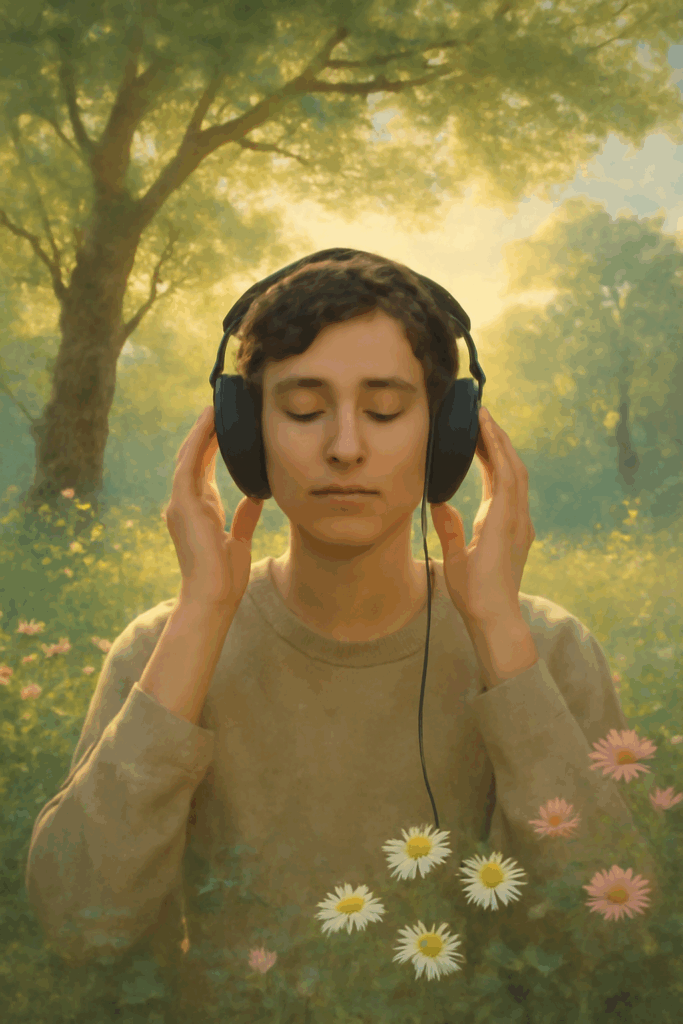Music has a unique way of resonating with every human, often transcending words. Yet, when it comes to expression, music splits into distinct worlds: the lush soundscapes of instrumentals and the raw purity of acapella. Whether you’re winding down to a tranquil piano piece or caught off guard by a spontaneous acapella performance on the street, one thing is clear—both forms offer power in simplicity and depth. What sets them apart goes beyond the surface.
On Reddit and other forums, musicians and listeners share their vivid experiences, often sparking debates: Which sharpens your musical ear? Which is more moving, technical, or challenging? Join us as we explore these musical realms, weaving in real voices from the web, story-rich perspectives, and essential data that bring clarity to this captivating comparison.

Instrumental Music: The Unsung Hero
Instrumental music comprises melodies, harmonies, and rhythms solely through musical instruments—no vocals involved. It’s a blank canvas that communicates pure emotion, painting scenes, and sometimes saying more than words can ever express.
Why Do People Love Instrumental Music?
- Universal language: Without words, instrumental tracks can be enjoyed irrespective of the listener’s native tongue, enabling a cross-cultural connection.
- Focus and productivity: Many Redditors mention using instrumental music to boost concentration during study or work, citing its lack of lyrics as key to better focus.
- Emotion without narrative: You, as the listener, inject your own story into the music. This allows deeper personal engagement, offering opportunities for meditation and even mindfulness practice.
Reddit Experience:
“Without lyrics, I feel like I can put my own feelings into the music, almost like it’s a soundtrack to my day. It really helps me focus when I’m working or writing.” [r/LetsTalkMusic]
Instrumental: Not Just Background Noise
Instrumental works frequently set the tone in films, commercials, and even games, often going unnoticed but nonetheless shaping emotional reactions. Legendary composers—Hans Zimmer, John Williams—are household names because their instrumental compositions linger in our collective memory.
Instrumental Music by the Numbers
| Genre | Study Playlists (%) | Sleep Playlists (%) |
|---|---|---|
| Instrumental | 3.23 | 2.52 |
| Soundtrack | 6.48 | 1.56 |
| Classical | 7.14 | 3.00 |
| Ambient | 1.75 | 5.74 |
[Based on a sample of over 100,000 tracks from music streaming platforms]
Acapella Music: Pure Vocal Power
Acapella (or a cappella) refers to music purely made with human voices, completely unaccompanied by instruments. The singers act as both the melody and the rhythm section, often mimicking percussion, basslines, and more with just their vocal cords.
The Magic (and Challenge) of Acapella
- Technical difficulty: Acapella musicians face nowhere to hide. Every note, breath, and pitch must hit the mark, as there’s no instrumental ‘mask’ to cover mistakes.
- Versatility and novelty: Acapella groups transition effortlessly from classical to pop—sometimes in one performance. That diversity keeps the genre exciting.
- Community and ego boost: Singing “one voice per part” creates camaraderie and recognition for each performer.
Reddit Experience:
“When I started singing acapella, I realized just how much I relied on backing tracks to stay in tune. It’s all you—no crutch. But when you get it right, there’s nothing more validating!” [r/singing]
The Popularity of Acapella
The genre’s rise owes a debt to pop culture: movies like Pitch Perfect spiked acapella streaming on Spotify by nearly 73% overnight. Today, leading groups like Pentatonix and college quartets repeatedly rack up millions of monthly listeners. Top performers demonstrate stunning vocal control, harmony, and creativity.
Top Acapella Artists on Spotify (Monthly Listeners)
| Artist | Monthly Listeners |
|---|---|
| Pentatonix | 2,797,273 |
| Home Free | 1,305,573 |
| Straight No Chaser | 1,040,961 |
| VoicePlay | 239,290 |
| Voctave | 86,476 |
Instrumental vs Acapella: A Head-to-Head Comparison
Both forms offer distinct listening and performance experiences. Here’s how they stack up:
| Feature | Instrumental Music | Acapella Music |
|---|---|---|
| Core Element | Musical instruments | Human voices only |
| Emotional Expression | Open interpretation, mood-driven | Lyric-based & pure vocal emotion |
| Accessibility | Universal—no language barrier | Often language- or lyric-based |
| Technical Difficulty | Focus on musician skill/ensemble | High—pitch & harmony must be impeccable |
| Popular Settings | Movies, work, meditation, background | Choir, live performance, competitions |
| Main Challenges | Conveying message without words | Maintaining pitch, complex harmonies |
| Historical Trends | Once more popular in early 1900s | Strong recent revival (thanks to media) |
Reddit Wisdom: The Subtle Nuances
Contributors on Reddit frequently mention that acapella, while harder, is crucial for honing a musician’s ear—it exposes pitch issues immediately, whereas instrumentals help singers develop a sense for harmony and timing.
“A capella lets you know if you’re actually on pitch; one wrong note, the whole group sounds off. With instrumentals, you get a feel for live performance, synchronizing with music, and working as a team.” [r/singing]

Pros and Cons Summed Up
Instrumental Pros
- Accessible worldwide—no need to know a language
- Enhances focus, relaxation, and creativity
- Vital for visual media and storytelling
Instrumental Cons
- Can sometimes lack emotional specificity
- May feel background-ish for listeners craving direct stories
Acapella Pros
- Ultimate test of musicianship and vocal skill
- Direct, personal—a human connection with every note
- Highly adaptable across genres
Acapella Cons
- More challenging to keep pitch steady
- Exposes errors instantly; less margin for error
- Requires more rehearsal and group unity
Final Thoughts
Instrumental and acapella forms each claim a unique spot in the musical universe. Instrumentals speak in universal tones, slipping quietly into the background or swelling with cinematic grandeur. Acapella, on the other hand, showcases the power and vulnerability of the human voice—often bringing both performer and audience face-to-face with the raw truth of music itself.
The ongoing Reddit debates and fan experiences reveal a truth: there is no contest, just difference. Both forms are invaluable; both are magic. The next time you settle in with a beloved instrumental or get goosebumps from soaring acapella harmonies, remember that you’re tapping into something rare. Both styles are reminders that music—at its best—brings us closer to ourselves, and to each other.
10 FAQs About Instrumental vs Acapella
Acapella means singing without any instrumental accompaniment—the voice does all the work.
Because there are no lyrics, people from all backgrounds can interpret and enjoy the music in their own way.
Acapella is generally seen as tougher for vocalists due to pitch accuracy and the lack of backing support, while instrumental music challenges musicians in different technical aspects.
Yes! Singing acapella reveals pitch and rhythm weaknesses quickly, making it a key exercise for vocalists.
Acapella has gained mainstream appeal thanks to films, TV, and viral videos, leading to a surge in streaming and group performances.
Genres like classical, jazz, and lo-fi remain strongholds for instrumentals, though pop is largely dominated by vocal tracks.
Instrumental hits were more common in the ‘60s and ‘70s; it’s rare but still possible for them to chart in today’s vocal-centric world.
Pitch control and keeping harmony without any note reference—it’s all on the vocalist.
Yes—many performances start acapella and introduce instruments for dramatic effect, or alternate between the two for dynamics.
Instrumentals often promote calm and focus, while acapella can evoke strong, direct emotional responses due to the intimacy of human voice.

Sandra is a music lover who writes for the Acapella Extractors blog. She enjoys discovering fresh sounds, diving into acapella edits, and sharing tips and stories that inspire fellow music enthusiasts.
